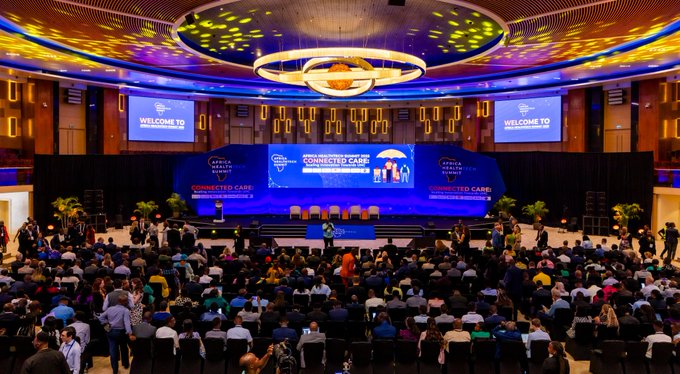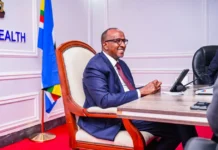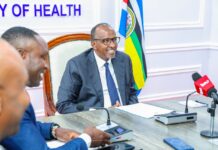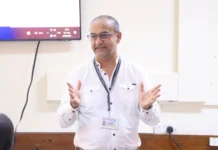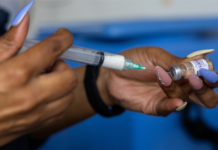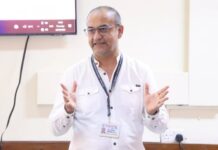More than 2,500 experts, policymakers, innovators, and health leaders from over 30 countries have gathered in Kigali for the fourth Africa HealthTech Summit (AHTS 2025), which runs from October 13 to 15 at the Kigali Convention Centre.
Themed “Connected Care: Scaling Innovation Towards Universal Health Coverage (UHC),” the summit highlights the role of technology and partnerships in transforming healthcare access across Africa.
Opening the three-day event, Rwanda’s Health Minister, Dr. Sabin Nsanzimana, emphasized the country’s progress in expanding healthcare access through its Health Sector Strategic Plan V (HSSP V), which aligns with Rwanda Vision 2050.
The plan focuses on strengthening healthcare infrastructure, expanding the workforce, promoting digital health systems, and improving service delivery to achieve universal health coverage.
Key reforms under HSSP V include the “4×4 Reform,” which aims to quadruple Rwanda’s health workforce within four years, and major investments in new hospitals and upgraded health centers designed to be climate-resilient and patient-friendly.
The plan also prioritizes digital innovation, including interoperable health information systems to enhance efficiency, equity, and continuity of care.
Summit discussions are centered on leveraging emerging technologies such as artificial intelligence (AI), Internet of Things (IoT), cloud computing, robotics, blockchain, and drone delivery systems to strengthen primary healthcare across the continent.
Delegates are also focusing on data interoperability, AI-driven diagnostics, public-private partnerships, and solutions for noncommunicable diseases, maternal and child health, and mental health.
Despite Rwanda’s notable progress, many African nations continue to face challenges such as limited health budgets, weak infrastructure, and unequal access to digital tools.
Experts at the summit underscored the need for sustained investment, strong policy frameworks, and inclusive innovation to ensure that digital transformation benefits all communities, particularly in rural and underserved areas.
The outcomes of AHTS 2025 are expected to guide policy direction, strengthen regional cooperation, and mobilize funding from both public and private sectors to accelerate Africa’s journey toward Universal Health Coverage by 2030.
By Michelle Ndaga









